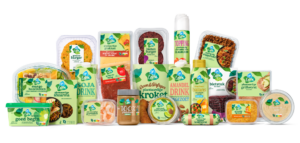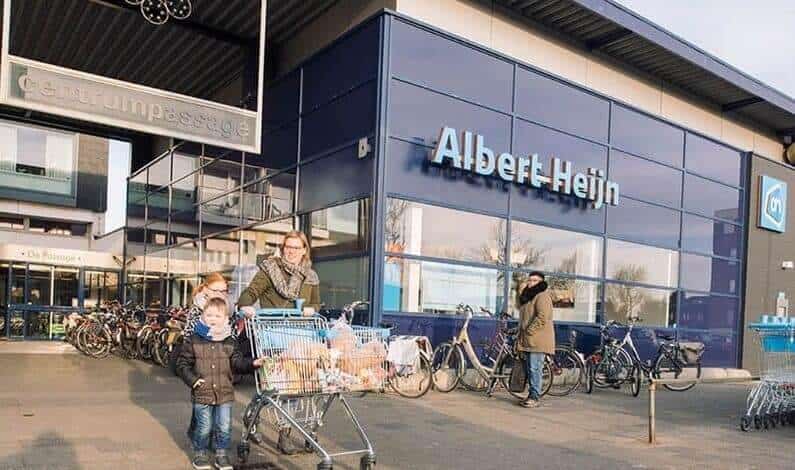In 2024, customers of Albert Heijn showed a clear preference for sustainable and healthy products. According to the annual report, the retailer achieved strong growth for the sixth consecutive year, resulting in an increased market share in both the Netherlands and Flanders. In the Netherlands, the market share rose from 36.8% in 2023 to 37.7% in 2024, according to figures from NielsenIQ. This growth was driven by an increase in customer numbers and greater loyalty among existing customers.
Significant revenue growth for Albert Heijn’s plant-based private label
Albert Heijn’s revenue growth was partly due to an increase in the sale of healthy and sustainable products. The share of products with a Nutri-Score of A or B increased by 0.8% to 48.8%, despite Albert Heijn tightening its Nutri-Score (Version 2.0) criteria in 2024, which led to fewer products being classified as A or B.

The plant-based product range of the private label AH Terra was well received: the range expanded to 250 products, and revenue grew significantly. The sale of “Verspakketten” (fresh meal kits) also increased, boosted by the introduction of organic versions. In the fruit and vegetable category, organic sales grew by 16% in 2024. Customers increasingly opted for Albert Heijn’s private label, which now accounts for almost 55% of total revenue. Popular offerings include 2,000 “Prijsfavorieten” (Price Favorites), which provide a wide selection of high-quality and affordable products.
Clear goal for the protein transition
Albert Heijn, along with 11 other Dutch food retailers, committed to ensuring that 60% of the proteins it sells will be plant-based by 2030. By 2023, 44.1% of the proteins sold at Albert Heijn were already plant-based.
Albert Heijn also reported further progress in making its supply chain more sustainable in 2024. Together with the 1,200 Dutch farmers in the “Beter voor Boer & Natuur” (Better for Farmer & Nature) program, CO2 emissions were reduced, and greater investments were made in sustainable farming techniques. Progress was also achieved with international suppliers through collaborations with organizations such as WWF and the “Positive Produce for People and Planet” program.





